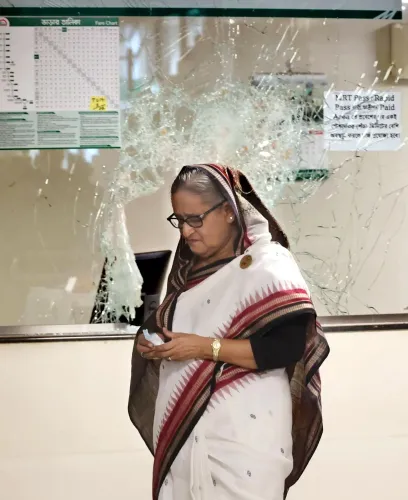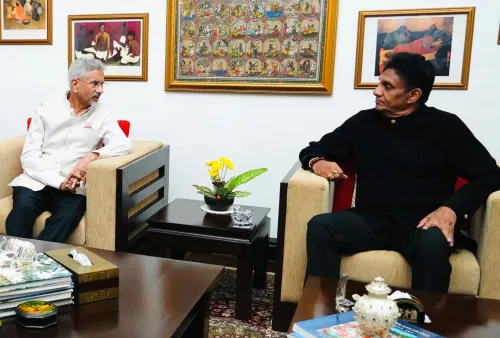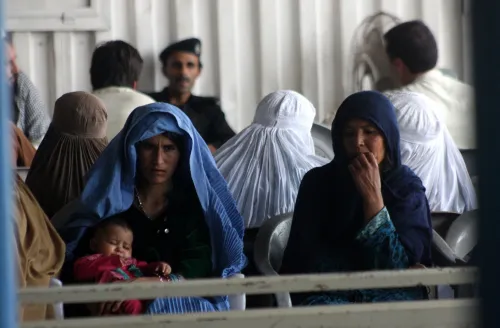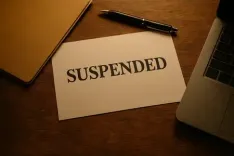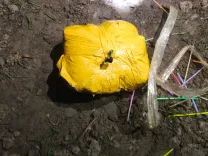Is the Syrian Interim Government Effectively Implementing the Ceasefire in Sweida?
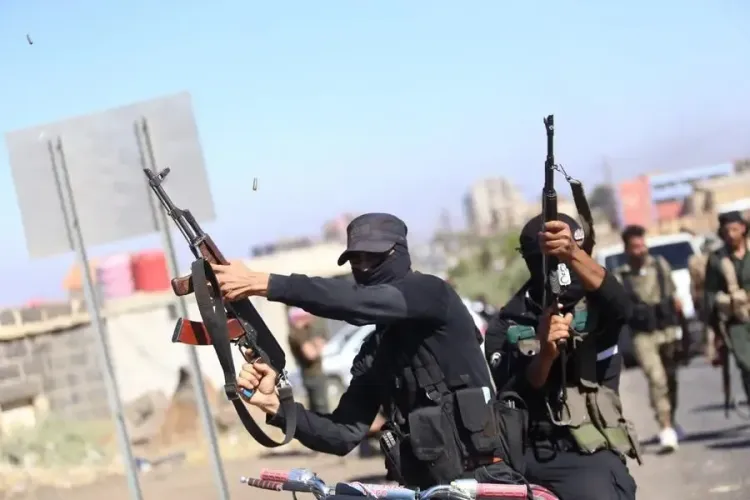
Synopsis
Key Takeaways
- Ceasefire Initiatives: The Syrian interim government is beginning a phased ceasefire in Sweida.
- Humanitarian Crisis: Hospitals are overwhelmed and lacking essential supplies.
- Renewed Violence: Clashes have reignited despite efforts to establish peace.
- Death Toll Rising: Casualties continue to mount, highlighting the severity of the conflict.
- International Concern: The situation has drawn attention from international organizations and governments.
Damascus, July 20 (NationPress) Forces from the Syrian interim government have commenced their deployment in Sweida province, marking the initiation of the first phase of a ceasefire agreement intended to halt the recent waves of sectarian violence, according to a source within the information authorities.
This initial phase focuses on the separation of competing armed factions, local groups in Sweida, and tribal Arab forces, forming part of a larger plan to restore peace, secure the release of detainees, and ensure the evacuation of hostages, as reported by Xinhua news agency.
An emergency committee has also been formed, comprising several public institutions, to accelerate the provision of essential humanitarian aid, medical support, and the restoration of basic services, all in alignment with the second phase of the agreement.
Once stability is achieved, the third phase will involve a systematic and planned redeployment of state entities and internal security forces throughout the province. This will be conducted in accordance with previous agreements that uphold the rule of law under the state's jurisdiction, according to the source.
However, despite these initiatives, violence erupted again on Saturday in western Sweida, with heavy gunfire reported after a brief period of calm.
The Syrian Observatory for Human Rights, based in the UK, indicated that the fragile ceasefire was disrupted due to renewed clashes between Druze armed groups and Bedouin tribal fighters.
The renewed fighting has sparked concerns over a potential collapse of the truce, which was negotiated with international assistance earlier this week. According to the observatory, military forces have started setting up checkpoints outside the administrative borders of Sweida to thwart infiltrations by armed groups.
The humanitarian situation continues to deteriorate. The main national hospital in Sweida has been rendered non-functional for days due to power outages, shortages of water and medical supplies, and the failure of dialysis services. Medical personnel have urgently warned of an impending public health crisis.
An alarming statement from the hospital staff addressed to international organizations and media outlets described the dire conditions: "Hundreds of unburied corpses are decomposing, worms are spreading, and foul odours fill the facility and surrounding streets." They have called for immediate action to prevent a potential "catastrophic epidemic."
Additionally, the last operational medical facility in the area, Salkhad Hospital, is reportedly on the brink of shutting down due to insufficient supplies and logistical support.
The observatory further reported that shortages of food, fuel, and water are intensifying, leaving thousands of families stranded without basic services. Access for humanitarian convoys remains obstructed due to ongoing skirmishes.
The cumulative death toll since the onset of fighting on July 13 has reached at least 940, as reported by the observatory, including 406 individuals from Sweida, of which 80 were civilians, and 330 military personnel from defense and interior authorities, including 18 tribal fighters.
Furthermore, 15 security members were killed in Israeli airstrikes, and one journalist lost their life amid the conflict. Allegations have emerged that government forces executed approximately 182 individuals, including 26 women, six children, and one elderly man.
The death count also includes three Bedouin civilians, among them a woman and child, who were executed by Druze fighters.
On Saturday, the observatory reported an assault by a tribal militia on the village of Kafr al-Lahf in western Sweida, which instilled fear among local residents. Separately, artillery fire from tribal positions targeted the village of Umm al-Zeitoun, causing property damage.



